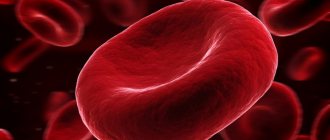HCG during pregnancy - normal occurrence
Human chorionic gonadotropin begins to be produced after the embryo has been implanted into the walls of the tag, and this occurs 6–8 days after fertilization of the egg by the sperm.
HCG is one of the most important indicators of the normal course of pregnancy. Just like other hormones (follicle-stimulating and luteinizing), it belongs to a number of gonadotropic hormones. The only difference between them is the different amino acid sequence. Test systems for determining pregnancy are based on the detection of human chorionic gonadotropin, namely its beta subunit in the urine. This is due to the fact that the hormone is excreted from the body in the urine.
Information about the hormone
HCG is a protein compound that consists of two types of particles, alpha and beta. The former resemble a hormonal substance produced by pituitary tissue. Beta particles have a unique structure. When pregnancy occurs, the chorion in the placenta is activated, and the secretion of hCG begins.
Human chorionic gonadotropin can be produced by the cells of some malignant neoplasms. This hormone is almost not detected in the blood of a healthy man and woman (outside of pregnancy).
The hCG test, like ultrasound, is used in gynecology to monitor the progress of pregnancy. Deviation of the analysis data indicates the presence of violations and requires a more thorough examination by a specialist. HCG levels are increased artificially, for example, during IVF. The introduction of this hormone activates the maturation of eggs in the female genital organs, increases the synthesis of progesterone and estrogens. In the male body, gonadotropin accelerates growth and increases the number of sperm.
HCG affects the functioning of the adrenal glands and stimulates the production of steroids. They are necessary for the body to prepare for the subsequent physical stress that a pregnant woman experiences in connection with bearing and giving birth to a child.
Properties of hCG
- Human chorionic gonadotropin stops the process of resorption of the corpus luteum of the ovary, which remains after the rupture of the follicle and the release of the egg, ready for fertilization. After all, it is in it that the progesterone and estrogen necessary for the normal course of pregnancy are synthesized.
- HCG has corticotropic properties, that is, it stimulates the production of steroid hormones by the adrenal cortex. Steroids help the female body cope with the stress that pregnancy poses to it. They also have immunosuppressive qualities that prevent rejection of the fetus as a foreign organism.
- The hCG hormone has a beneficial effect on the growth and development of the placenta by improving its nutrition and functional activity. Human chorionic gonadotropin also affects the chorion (the outer membrane of the fetus), increasing the number of its villi.
- Changes in the anatomy and physiology of the female body during pregnancy are also directly related to the effects of hCG.
- It takes part in the differentiation of the male fetus, namely, it induces the synthesis of testosterone by the testes.
The structure and role of hCG in a woman’s body
Human chorionic hormone (hCG) is produced in both women and men. In a woman's body it is produced by the pituitary gland. In the male body, hCG synthesis occurs in the testicles. Its concentration is insignificant and never exceeds five milliinternational units in one milliliter of blood.
HCG in its structure is a glycoprotein with a fairly large molecular weight. It consists of two particles of unequal importance: α and β. The α subunit is found not only in hCG, but also in other gonadotropic and thyroid hormones. The component that distinguishes hCG from other gonadotropes is its β-substance. Thanks to it, such properties of chorionic hormone as immune specificity and biological activity are manifested.
The biological activity of hCG is similar to that of follicle-stimulating and luteinizing hormones. It is able to bind to both types of gonadotropin receptors. HCG exhibits a more pronounced luteinizing activity than follicle-stimulating activity.
After conception, hCG begins to be produced not only by the pituitary gland, but also by the placenta. The activity of placental hCG is much stronger than that of the pituitary hCG. It is he who contributes to the persistence of pregnancy. Normally, the corpus luteum formed at the site of the burst follicle resolves after two weeks. If the egg is fertilized and implanted, then from the first days of pregnancy the syncytiotrophoblast begins to produce hCG, which prevents the corpus luteum from dissolving.
It continues to function for two weeks and synthesizes progesterone and estrogen, which support pregnancy. Only after the placenta itself becomes capable of producing these hormones does the need for the corpus luteum disappear, and it is eliminated on its own. HCG has the ability to stimulate the synthesis of small amounts of estrogens and weak androgens by the corpus luteum.
It also has an immunosuppressive effect, which allows you to maintain pregnancy. Since hCG causes physiological hyperplasia of the adrenal cortex, during pregnancy the amount of corticosteroid hormones in a woman’s blood increases. Glucocorticoids increase a pregnant woman's resistance to the stress that pregnancy itself causes. In addition, they are powerful immunosuppressants, which prevents the fetus from being rejected.
The hCG level increases day by day. This contributes to the good development of the placenta, improving its trophism and maintaining functional activity. When the concentration of hCG increases over the weeks, the number of chorionic villi increases in the correct proportion. However, there are situations when the level of hCG increases day by day in the absence of pregnancy or in men. In this case, you need to think about ectopic hCG, the cause of which may be malignant neoplasms.
Injection of exogenous hCG in the middle of the female cycle leads to an increase in the ovarian synthesis of progesterone and estrogen, then ovulation begins, and then luteinization of the burst follicle. This contributes to the successful fertilization of the egg and the progression of pregnancy. Administration of hCG to a man leads to increased spermatogenesis and testosterone synthesis, which increases his fertility. However, an increase in hCG levels over the weeks in a man can occur if he has a tumor of the testes.
HCG during pregnancy: normal
The normal level of human chorionic gonadotropin in the blood of a non-pregnant healthy woman ranges from 0-5 mU/l. The same level is found in the blood of men.
In the case when the course of pregnancy is physiological (normal), the concentration of hCG gradually doubles with an interval of two days. Its maximum value is determined in the period of 8–10 weeks of pregnancy and is up to 291 thousand honey units/ml. Next, the hormone level quickly decreases, reaching a value of about 4 – 80 thousand mU/ml during pregnancy 16 – 21 weeks. Until the moment of birth, approximately the same hCG value is maintained.
HCG during pregnancy - norm by week:
- from 1 to 2 weeks of pregnancy - 25 - 156 mU/ml
- from 2 to 3 weeks of pregnancy – 101 – 4870 mU/ml
- from 3 to 4 weeks of pregnancy – 1110 – 31500 mU/ml
- from 4 to 5 weeks – 2560 – 82300 mU/ml
- from 5 to 6 weeks – 23100 – 151000 mU/ml
- from 6 to 7 weeks – 27300 – 233000 mU/ml
- after 7 weeks and before 11 weeks – 20900 – 291000 mU/ml
- from 11 to 16 weeks – 6140 – 103000 mU/ml
- from 16 to 21 weeks – 4720 – 80100 mU/ml
- from 21 to 39 weeks of pregnancy – 2700 – 78100 mU/ml
In some situations, it is necessary to determine hCG during pregnancy. The norm indicates the correct course of pregnancy.
Tests for the content of human chorionic gonadotropin can be taken at the IVF Center clinic in Smolensk.
Interesting facts about hCG
All about the “special” hormone
HCG is an abbreviation that stands for
human chorionic gonadotropin
. This is a hormone found in large quantities only in the body of women who are expecting a baby. Therefore, it is a special indicator of an “interesting situation.” As a rule, hCG is concentrated in the blood of the expectant mother and in her urine. Today, pregnancy tests are produced based on human chorionic gonadotropin. It is noteworthy that hCG is produced by the villous membrane of the fertilized egg approximately 7 days after direct conception. During this period, implantation of the embryo into the mucous layer of the uterus occurs. Having penetrated into it, the embryo begins to produce a “special” hormone.
It is known that alpha and beta units are the basis of the pregnancy hormone.
All hormones produced by the pituitary gland (TSH, LH, FSH) have an alpha unit. But the beta component is found exclusively in hCG, and it is this component that makes this hormone “specific” and “special”. What is hCG used for?
Nothing is created by nature just like that, and the “pregnancy” hormone is direct proof of this.
When a small life begins to develop in a woman, hCG takes on the following functions:
* Supports the corpus luteum and helps it carry out all functions until 12 weeks of pregnancy. This is then done by the placenta.
* Influences the immune processes occurring in the body of the expectant mother. A “special” hormone suppresses a woman’s immune system so that her body does not reject the embryo. After all, in fact, for the mother’s immune cells, a child is a foreign body.
* Positively affects the uterus. The sensitivity of nerve endings to the perception of nutrients and hormones is increased thanks to hCG.
* Also, with the help of a special hormone, new blood vessels are formed, as well as the uterus relaxes. This way it spasms less, which means the risk of frozen pregnancy and miscarriages is reduced.
HCG - interesting facts:
1.
A special hormone is synthesized in the pituitary gland. It is found in small quantities in non-pregnant girls and even men. In a healthy person, its concentration ranges from 0 to 15 mIU/ml. But if the amount of the hormone is increased, but pregnancy is definitely excluded, we can talk about serious pathologies.
2.
The hCG hormone was discovered in 1920 by scientists S. Ascheim and B. Zondek. Subsequently, based on this discovery, the first test system was invented, named after the scientists’ data “A-Z test”. They injected women's urine into the bodies of rabbits, frogs and mice. If after this transformations were observed in the genital organs of animals, this meant that the girl was pregnant.
3.
The first “home” tests indicating pregnancy began to be sold in pharmacies in 1977. This happened after the feminist movement of women who fought for their rights.
4.
The concept of developing a “home” test based on hCG was introduced by designer Margaret Crane.
Such test systems were called “Predictor” and looked almost like modern cassette-type pregnancy tests. 5.
Test strips became available to women in 1988, and digital test systems only in 2003.
6.
In a pregnant girl's body, hCG doubles every 48 hours. It is by this indicator that a developing or ectopic pregnancy can be determined.
7.
The second day of the delay is the optimal time to conduct a “home” test. But if a girl does a blood test for hCG, the result will be reliable even before the delay. The point is that the hormone is present in the blood immediately, but it is produced in the urine only after a certain period after implantation.
You can donate blood for hCG at EVACLINIC, and also register for pregnancy in order to carry it out in conditions of maximum comfort, coziness and understanding. You can view pregnancy management programs here.
HCG during pregnancy: the norm is not met
There are situations in which the above standards are not observed, which indicates the presence of pathology in the body of a pregnant woman or fetus. Decreased or elevated levels of this hormone will be of diagnostic importance.
Reasons for increasing hCG
- Multiple pregnancy (twins, triplets, etc.). In such a situation, the level of concentration of the hCG hormone will increase in proportion to the number of children.
- Diabetes mellitus in a pregnant woman.
- Taking progestin medications.
- Toxicosis or gestosis in a pregnant woman.
- Pathology of the fetus of a chromosomal nature.
- Incorrectly set gestational age.
Reasons why hCG levels decrease
- Incorrectly set gestational age.
- Threat of miscarriage (hCG is reduced by more than 50% of normal).
- Ectopic pregnancy.
- Delayed normal fetal development.
- Chronic placental insufficiency.
- A pregnancy that does not develop.
- Intrauterine fetal death.
- Post-term pregnancy of a true nature.
Even non-pregnant women and men may have diseases in which elevated levels of human chorionic gonadotropin will be detected. These include: tumors of the kidneys, uterus, testicles, digestive tract, chorionic carcinoma (cancer) and hydatidiform mole.
MEDICAL CENTER
Early diagnosis of pregnancy: determination of hCG levels
What is hCG?
HCG (human chorionic gonadotropin) is a special pregnancy hormone, which is an important indicator of the development of pregnancy and its abnormalities. Human chorionic gonadotropin is produced by the cells of the chorion (the membrane of the embryo) immediately after its attachment to the wall of the uterus. Based on a blood test for human chorionic gonadotropin, the doctor determines the presence of chorionic tissue in the body, and therefore the onset of pregnancy in a woman.
When can a test be performed to determine hCG levels?
Determining the level of human chorionic gonadotropin in the blood is the most reliable method for determining pregnancy in the early stages. Human chorionic gonadotropin appears in a woman’s body 5-6 days after fertilization. A common rapid pregnancy test, which every woman can use at home, is also based on the determination of human chorionic gonadotropin in the urine, but the required level of this hormone in the urine to diagnose pregnancy is achieved several days later.
In the absence of any pathology, in the first weeks of pregnancy the level of the hormone doubles every 2 days, and its maximum concentration is reached by 10-11 weeks of pregnancy. After week 11, the hormone level gradually decreases.
An increase in the level of human chorionic gonadotropin during pregnancy can occur with:
- multiple births;
- toxicosis, gestosis;
- maternal diabetes;
- fetal pathologies, Down syndrome, multiple developmental defects;
- incorrectly determined gestational age;
- taking synthetic gestagens, etc.
Elevated values can also be seen within a week when tested after an abortion procedure. A high level of the hormone after a mini-abortion indicates a progressive pregnancy.
Low levels of human chorionic gonadotropin during pregnancy may indicate incorrect timing of pregnancy or be a sign of serious disorders, such as:
- ectopic pregnancy;
- non-developing pregnancy;
- delay in fetal development;
- threat of spontaneous abortion;
- chronic placental insufficiency;
- fetal death (in the II-III trimester of pregnancy).
Determining the level of human chorionic gonadotropin is part of a triple test study, the results of which can be used to judge the presence of certain abnormalities in fetal development, but an accurate diagnosis cannot be made. The study only allows us to identify women at risk. In this case, women will need to undergo serious additional examination.
What is the role of the hCG hormone in the human body?
In addition to establishing the fact of pregnancy, by quantifying the level of this hormone, one can judge the nature of the pregnancy and the presence of multiple pregnancies.
The most important task of human chorionic gonadotropin is to maintain the pregnancy itself. Under its control, the synthesis of the main pregnancy hormones occurs: estrogen and progesterone. In the first trimester, until the placenta is fully formed (up to 16 weeks), human chorionic gonadotropin maintains the normal functional activity of the corpus luteum, namely the production of progesterone.
Another important function of human chorionic gonadotropin is to stimulate ovulation and maintain the viability of the corpus luteum.
When does a doctor order a hCG test?
In addition to diagnosing early pregnancy, human chorionic gonadotropin is determined by:
among women -
- to detect amenorrhea;
- eliminating the possibility of ectopic pregnancy;
- to assess the completeness of induced abortion;
- for dynamic monitoring of pregnancy;
- if there is a threat of miscarriage and suspicion of an undeveloped pregnancy;
- for the diagnosis of tumors - chorionepithelioma, hydatidiform mole;
- for prenatal diagnosis of fetal malformations;
for men -
- for the diagnosis of testicular tumors.
How to take a blood test for the hCG hormone?
The independent laboratory STUDIO DOCTOR offers a laboratory test to determine the level of human chorionic gonadotropin.
The test is taken by taking blood from a vein, preferably in the morning and on an empty stomach. A laboratory test is recommended to be carried out no earlier than 4-5 days of missed menstruation, and can also be repeated after 2-3 days to clarify the results. To identify fetal pathology in pregnant women, it is recommended to take the test from 14 to 18 weeks of pregnancy.
In a comprehensive diagnosis of fetal malformations, it is also recommended to take tests to determine the following markers: AFP (alpha-fetoprotein), E3 (free estriol), and also do an ultrasound.
HCG as a marker of fetal abnormalities
Every pregnant woman at a certain stage of pregnancy must undergo a series of screening examinations, which will allow us to suspect the presence of a possible problem as early as possible. Determination of the level of human chorionic gonadotropin is included in this list.
Anomalies of fetal development in which the level of hCG increases:
Down syndrome, Patau syndrome, Edwards syndrome, Turner syndrome and severe structural disorders of the fetal neural tube.
In cases where, based on the results of screening examinations, an abnormality of fetal development was suspected, the pregnant woman is prescribed a number of additional tests and examinations. Depending on the stage of pregnancy, different techniques are used: cordocentesis, amniocentesis or fetal chorionic villus biopsy. In addition, consultation with a geneticist is required.
HCG for ectopic pregnancy
An ectopic pregnancy is a pregnancy in which the embryo attaches anywhere other than the inner wall of the uterus. This can be the right or left fallopian tube, the abdominal cavity, the ovaries and other places along the path of the egg during ovulation. An ectopic pregnancy is a very dangerous condition, because in addition to the fact that it is almost always interrupted, it can cause enormous harm to the female body, even death.
Determination of hCG during pregnancy (the norm is given above) in combination with an ultrasound examination of the pelvic and abdominal organs is the “gold standard” in diagnosing ectopic pregnancy and determining the site of embryo attachment. In the presence of an ectopic pregnancy, a much lower level of human chorionic gonadotropin is determined in the blood than should be normal. This is due to the fact that the outer shell of the fruit produces much less of it. With increasing gestational age, there is no significant increase in hCG.
In situations where a low level of hCG indicates an ectopic pregnancy, and ultrasound diagnostics does not reveal the exact site of attachment of the embryo, laparoscopic surgery is prescribed.
To the symptoms of ectopic pregnancy
include: bloody vaginal discharge, abdominal pain that began after a missed period, fainting conditions combined with a delayed period. Determining hCG during pregnancy (the norm at the beginning of the article by week) with such symptoms will help determine the problem.
HCG during frozen pregnancy
A situation where, for any reason, the fetus stops developing and dies, but spontaneous miscarriage does not occur, is called a frozen pregnancy (antenatal fetal death). This condition can be suspected based on the following signs: delayed menstruation, a positive pregnancy test, the absence of external signs of a developing pregnancy, a stop in the rate of increase in hCG and then its gradual decrease, the absence of a fetal heartbeat on ultrasound or other obvious signs.
Reasons why the fetus freezes:
abnormalities of the chromosomal apparatus incompatible with life, inflammation of the endometrium of the uterus, pathology of the structure of the uterus and many others.
Then, when a miscarriage during a frozen pregnancy does not occur on its own, an abortion is performed by medication (administration of special medications) or by curettage of the uterine cavity.
HCG and specific tumors
Such processes include complete or partial hydatidiform mole (pathology of the fetal egg) and chorionic carcinoma.
Hydatidiform mole is not a true malignant neoplasm, but can lead to disastrous consequences. That is why it is necessary to diagnose it as early as possible. The level of hCG during pregnancy (see the norm above) in a woman with a hydatidiform mole is several times higher than normal levels. If the diagnosis is not made in a timely manner and the chorion is removed, it can develop into a malignant tumor - chorionic carcinoma, and quickly metastasize to various organs.
Functions of gonadotropin during pregnancy
In the body of a woman in an interesting position, hCG performs the following functions:
- supports the development of the corpus luteum;
- stimulates the production of progesterone and estrogens;
- activates the immune system of the expectant mother.
In the first hCG tests during early pregnancy, a sharp jump in hormone levels is determined. At this period, the fetus itself cannot maintain the necessary hormonal levels, so gonadotropin takes on this task. Subsequently, as the embryo grows, its level will decrease.
HCG stimulates the ripening of the placenta and the development of chorionic filaments. Without this active substance, normal fetal development would be impossible. That is why all programs for monitoring pregnant women include mandatory testing for gonadotropin.
Preparing to donate blood for hCG
If a pathology is suspected, the doctor may additionally prescribe a blood test for hCG during pregnancy. Whether it’s normal or pathological is not always easy to figure out, because there may be various factors that distort the result of the analysis. It is for this purpose that a number of recommendations have been developed,
which should be followed on the eve of blood sampling:
- Avoid excessive physical activity at least 24 hours before donating blood.
- You cannot take medications.
- Avoid drinking alcohol.
- Smoking is prohibited 3 hours before the test.
- It is not recommended to donate blood for hCG after various additional examinations and physiotherapeutic procedures (X-rays, ultrasound, massage, etc.).
- It is advisable for a woman to come to the blood donation procedure well rested and without stress.
- The most suitable time for blood collection is considered to be the morning (from 8 to 10 o'clock).
- Blood is drawn on an empty stomach. You can't do anything other than a glass of still water.
- It should be noted that when repeating blood tests for hCG, it is not recommended to change the conditions under which the first test was taken. Following this simple rule will help make a correct comparison over time.
Indications for the study
Not only the fair sex, but also men donate blood for hCG. Their levels of this hormone help to identify the presence or absence of tumors of the gonads.
Women are tested for human chorionic gonadotropin much more often. Below are the indications for this analysis:
- confirmation of pregnancy;
- a large delay in the menstrual cycle (may occur as a result of infection, dysfunction of the gonads, intoxication or stress);
- monitoring the course of normal and pathological pregnancy;
- diagnosis and monitoring of trophoblastic neoplasms;
- suspected ectopic pregnancy.






